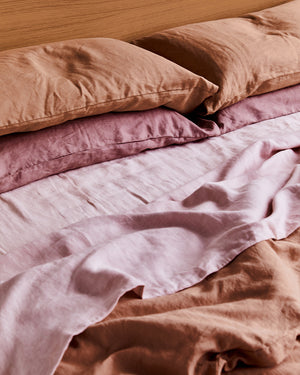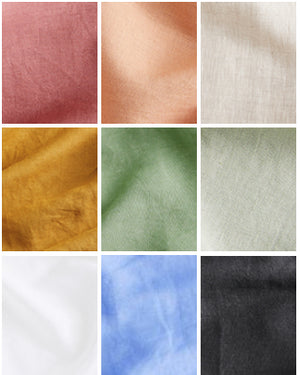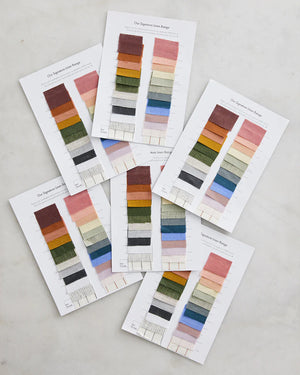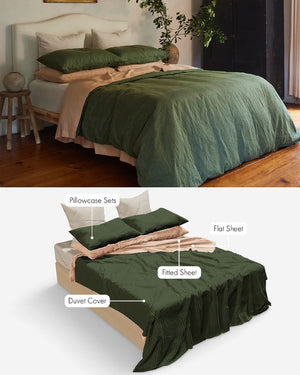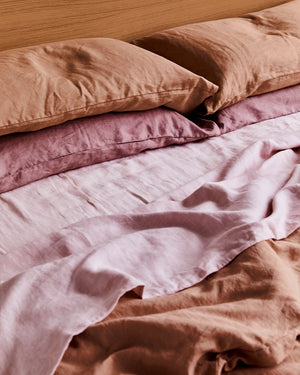Do Weighted Blankets Actually Help You Sleep? Here's What Experts Say
There has been very little scientific research into the effectiveness of weighted blankets for improving sleep and reducing anxiety. Ask someone who has used a weighted blanket, however, and they might say it's been a game-changer.
Using a weighted blanket can feel like you're being hugged by a loved one, or like you're a baby being swaddled, or like you've just come out of the world's greatest massage.
To understand why weighted blankets have become a popular way to help improve sleep quality and reduce anxiety, let's first have a look at exactly what they are, and then examine deep pressure stimulation (DPS), a technique that has been historically used to relieve pain, lessen anxiety and improve mood in the treatment of autism, ADHD and other disorders.
What is a weighted blanket?
Comprising an outer shell, fabric padding, and some sort of heavy pellets distributed evenly, a weighted blanket is most effective at 5 and 10 per cent of the user's body weight. The goal is to apply light, even pressure over the entire body, which helps to keep the body more still during sleep and create a comforting sensation.
In the '90s, weighted blankets were used by occupational therapists not for sleep but rather to help soothe overstimulation in children with autism.
Annette Joosten, who is an associate professor at the Australian Catholic University specialising in occupational therapy, compares the effect of a weighted blanket to the impact of a hug.
"[T]he theory is," she says, "that firm, deep pressure could have an impact on the central nervous system, calming a child who was over-aroused or overactive."
In the past decade, weighted blankets have been revamped and re-marketed during the wellness-centric market of the late 2010s and today.
How does it work?
According to Dr. Michael J Breus, using a weighted blanket is akin to deep pressure stimulation (DPS), which can trigger oxytocin, otherwise known as the cuddle hormone or love hormone. Writing for Psychology Today he says: "This hormone can stimulate feelings of attachment and closeness, and generate a deep sense of calm. Think about the relaxing feeling of a warm, welcome hug—that’s oxytocin at work."
There's the anxiety-reducing part, but what about sleep? Well, it is one of the hormones involved in regulating the sleep-wake cycle, Breus writes. Oxytocin peaks during REM sleep.
Likewise, research has shown that DPS can reduce levels of cortisol (aka the stress hormone), making restful sleep more probable.
It's also been shown that DPS increases serotonin, and we all know how important serotonin is to everything from stable mood cycles, healthy energy levels, and good sleep-wake cycles. As Dr. Breus says, serotonin is a precursor to melatonin (aka the sleep hormone).
All in all, the hormonal effects of DPS can help greatly to set the scene for good sleep.
The takeaway
If you're struggling to fall asleep and stay asleep at night, a weighted blanket could help. If you don't feel like splurging on a weighted blanket, you can create a similar effect by simply layering extra bedding on top of your standard sheet and duvet set. With this, the most important thing to remember is to use a breathable fabric so that you can reap the benefits of extra weight without overheating. Swaddle yourself in a Bed Threads linen throw and see how it feels, why don't you?








